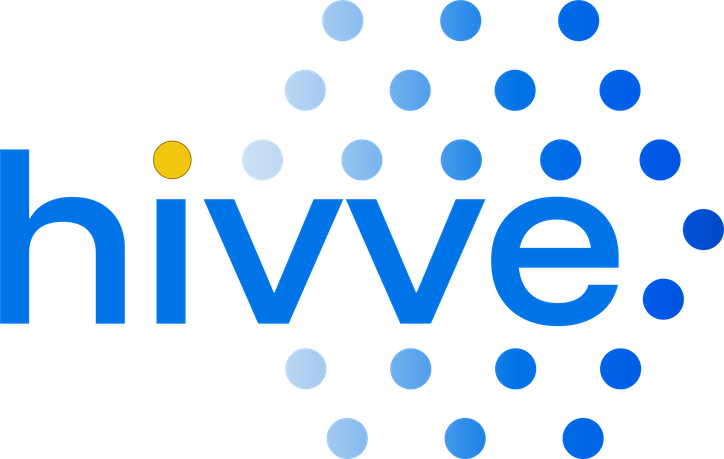Original text by Alex Smith, Senior Marketing Strategist at Vertigo Ventures
On Wednesday 8th June 2022, the ERC (European Research Council) notified 143 UK researchers that the grants they had secured through the Horizon Europe programme were to be terminated.
This development follows a letter sent two months previously, which warned the applicants that they would need to relocate their successful grants to an EU institution; an ERC spokesperson commented that “it is legally impossible to sign grants with host institutions that are not in an EU member state or in an associated country”.
Despite an agreement between the EU and UK in December 2020 that the collaboration within Horizon Europe would continue as part of the wider Brexit deal, finalisation of the arrangement has been inhibited by EU concerns around the Northern Ireland protocol.
#BrexitHasFailed just keeps getting worse! We lost #Erasmus – competitiveness with the EU on hiring top scientists and now even the prestigious #ERC might be in perils! #BrexitBrokeBritain#HorizonEurope #ToryBrexitDisaster#ToriesOutNowhttps://t.co/TUCY3k5Ja5
— Patty Kostkova 🇺🇦 🇦🇲 (@PattyKostkova) June 10, 2022
The situation has not quite reached its denouement, however. UK association with Horizon Europe is not completely off the table; and the affected researchers have been presented by the ERC with a final deadline of 29th June 2022 to make the decision either to move their grants to an EU institution, or lose out on the funding altogether (although the UK government has said that it will support those individuals with its own alternative should the worst happen).
Horizon Europe and the Global Consequences of a Funding Brexit
Horizon Europe is the world’s largest research programme, with a budget of €95.5 billion allocated between 2021-2027 to support research and innovation. It is the direct successor to Horizon 2020, increasing the funding pool from a previous €77 billion and creating a world of possibilities for EU institutions and those in countries such as Norway and Israel, which are classified as “associate members” (as would be the UK if the agreement proceeded).
The consequences for UK researchers, institutions, and science and innovation generally are significant given the size and prestige of the fund – and could play havoc with the UK government’s stated ambitions for the country to become a “science superpower”.
While this is clearly bad news for the UK, which will further risk the loss of some of the brightest researchers and scientific minds to institutions within EU member states, the implications for scientific progress more generally are perhaps even more profound. A letter from Universities UK to the ERC claimed that “failure to secure UK association to Horizon Europe would be a lose-lose for health, wealth and wellbeing” – meaning that those fields would suffer on a global scale.
Horizon Europe’s website states that “the programme facilitates collaboration and strengthens the impact of research and innovation in developing, supporting and implementing EU policies while tackling global challenges. It supports creating and better dispersing of excellent knowledge and technologies.”
This is the nature of such ambitious funding programmes – to identify the best research initiatives and support these by providing them with the financial support to accomplish their progressive goals, helping to accelerate those projects that make a difference to the wider world.
Although the funding would be reallocated, the fact remains that these 143 researchers had already been selected by the ERC, which had found their work to be of the world-leading quality that deserves the grant amounts (one of which, for example, amounted to €3.1 million).
If the EU-UK agreement fails to go through, then those grant holders that remain in the UK and accept the government’s offer will receive funding through an alternative programme (codenamed Plan B). But the severance has much wider implications beyond the financial – the researchers will be able to access funding, but may well struggle to attract the best collaboration without the prestige bestowed upon their work by the Horizon Europe brand.
Collaboration is Key – But Is Held Back by Global Inequalities
In Horizon 2020, the United Kingdom was second only to Germany in the total amount of funding secured. However, by losing out on these collaboration opportunities within Horizon Europe, the researchers’ projects are at risk of failing to realise their full potential, with less relevant talent willing to become involved to support their success.
When there have already been so many successful UK-driven projects from Horizon funding, including ones entirely driven by UK institutions, and ones with many global participants such as a new approach to studying ocean ecology, the scale of the potential loss should not be underestimated.
There's no debate, it's anti-science, simple as that.
The EU could find more effective ways of punishing the UK than going after UK/EU scientists applying for grants.
It's more important than politics.
— John Macnab (@roamer99) June 9, 2022
Of course, it is easy just to look at these matters through a Global North lens and not consider how political and geographical boundaries and inequalities worldwide can negatively impact on research progress.
At the AESIS Impact of Science conference hosted virtually from Johannesburg last June, we learned more about many of the research challenges that continue to plague Global South researchers and institutions.
For instance, South Africa, despite being a world leader in fields such as nanotechnology, still struggles to gain recognition for its researchers and attract the collaboration that would elevate these projects to the next level and accelerate their social, cultural, economic and environmental impact.
Much as UK researchers could find it more difficult to secure the collaborative opportunities they would benefit most from, so too do Global South research projects often fail to achieve vital international prestige and visibility.
Connecting the Dots for a Sustainable, Scientific Tomorrow
With the SDG 2030 target edging closer, and the world locked in crises that range from food shortages through to environmental disasters and wars, the need for science to be supported to its maximum potential – with the right people and the right funding connected to accelerate the best projects – is greater than ever. This year we have seen CO2 levels hit record highs in human history, creating an even greater imperative to facilitate genuine innovation and action.
The situation with Horizon Europe and the UK is an unfortunate political consequence that requires the yielding of ground somewhere, but while the potential association is not yet terminal, hope for a successful resolution can remain. The alternative creates yet further political division between the island nation and the continent, while restricting collaborative opportunities that the world may well depend upon to boost scientific progress and make the kinds of impact needed for sustainable, healthy global futures.
When it comes to the Global South, where more deprived researchers strive to have their world-class research recognised and supported, we need to consider alternative methods of matching funders and skilled collaborators to projects. The same could very well be true for the UK if it is unable to reach an accord around Horizon.
There are skilled researchers, interested policy makers, empowered members of industry, generous charities and other funders all around the world – in the US alone there were 86,203 foundations in 2015, funding grants of $62.8 billion – but of course geographical and political inequalities do not grant all the same level of access and opportunity.
Our way forward must be one that creates new ways of collaboration, better possibilities for connecting funders with the causes they care about, and more efficient methods of matchmaking the best skills with the most important research projects, wherever in the world those individuals and organisations happen to be. And the projects need to be accessible through a democratic framework, one that presents them based on merits, on topics and SDGs addressed, and allows them to be filtered and searched alongside one another, whether they originate in Global North or Global South institutions.
This is what we are looking to achieve with TrackImpact.org – a truly global research collaboration platform that enhances and amplifies impact by making it easy for the right people to find the right projects, and then collaborate with the owners. Whatever the outcome of the UK / Horizon Europe situation, the need for a more connected global research community remains paramount, making sure that we can accelerate research and keep solving the grandest of challenges – the SDGs.

